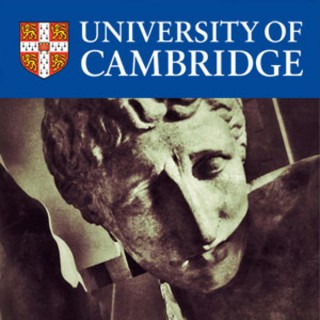Podcasts about linnebo
- 6PODCASTS
- 8EPISODES
- 37mAVG DURATION
- ?INFREQUENT EPISODES
- Mar 26, 2023LATEST
POPULARITY
Best podcasts about linnebo
Latest news about linnebo
- Platonism in the Philosophy of Mathematics Stanford Encyclopedia of Philosophy - Mar 29, 2023
Latest podcast episodes about linnebo
I en verden hvor 70% av landene er autokratier må vi forstå og følge med på utviklingen av demokratiene. Universitetet i Oslo satser på demokratiforskning. Denne epiosden av Universitetsplassen er fra lanseringen av UiO:Demokrati med bl.a Tore Rem, Carl Henrik Knudsen, Øystein Linnebo, Tore Wig, Hilde Reinertsen, Eivind Engebretsen, Jette Kristensen og Sunniva Gylver.
«The big bang» er teorien om hvordan verden har oppstått. Alternativet er at det alltid har eksistert, men det medfører rare paradokser. Hilberts hotell og mystiske kvantefelt er bare begynnelsen. Hør astrofysiker Trygve Leithe Svalheim og filosof Øystein Linnebo diskutere om verden har blitt til, eller om den har vart evig. Programleder er Elina Melteig.
A talk given by Øystein Linnebo (Oslo) at the Moral Sciences Club on 26th February 2019.
Hvordan kan man gjøre ungdomsskoleelever til produsenter av digitale løsninger, fremfor bare å være konsumenter? Og hvordan kan arbeidsledige ingeniører være løsningen på dette? I denne episoden av #LØRN snakker Sunniva med daglig leder i Kompaks AS, Anne Kathrine Linnebo, om hvordan ungdomsskoleelever i Asker lærer programmering av arbeidsledige teknologer. — Sammen med mange ingeniører, Asker kommune og lærere i Asker utvikler vi en opplæringstjeneste i undervisning i teknologi for lærere. Kjernen i tjenesten er en ondemand, on site, modulbasert og aktiv etterutdanning av læreren for å undervise i teknologi, på lærerens premisser.Dette lørner du: InnovasjonGründerskapFremtidens skoleEdTech See acast.com/privacy for privacy and opt-out information.
Linda Linnebo fra Dæhlie om treningsbekledning, trender og utvikling + om skilandslaget.
Linda Linnebo, fra Dæhlie, om hvordan man skal kle seg på trening, trender og utvikling og hvordan skilandslaget liker å kle seg på trening og konkurranse - og mye mer!
Stewart Shapiro (Ohio) gives a talk at the MCMP Colloquium (18 December, 2014) titled "An Aristotelian continuum". Abstract: Geoffrey Hellman and I are working on a point-free account of the continuum. The current version is “gunky” in that it does not recognize points, as part of regions, but it does make essential use of actual infinity. The purpose of this paper is to produce a more Aristotelian theory, eschewing both the actual existence of points and infinite sets, pluralities, or properties. There are three parts to the talk. The first is to show how to modify the original gunky theory to avoid the use of (actual) infinity. It is interesting that there are a number of theorems in the original theory (such as the existence of bisections and differences, and the Archimedean property) that have to be added, as axioms. The second part of the talk is to take the “potential” nature of the usual operations seriously, by using a modal language. The idea is that each “world” is finite; the usual operations are understood as possibilities. This part builds on some recent work on set theory by Øystein Linnebo. The third part is an attempt to recapture points, but taking the notion of a potentially infinite sequence seriously.
Discernibility from a countable perspective
Kate Hodesdon (Nancy) gives a talk at the Workshop on Mathematics: Objectivity by Representation (11 November, 2014) titled "Discernibility from a countable perspective". Abstract: In this talk I discuss formal methods for discerning between uncountably many objects with a countable language, building on recent work of James Ladyman, Øystein Linnebo and Richard Pettigrew. In particular, I show how stability theory provides the resources to characterize theories in which this is possible, and discuss the limitations of the stability theoretic approach.
7/11/2011: Øystein Linnebo on Reference by Abstraction
Øystein Linnebo is Professor of Philosophy at Birkbeck, University of London, where he arrived in January 2010, having held positions at the Universities of Bristol, Oxford, and Oslo. He obtained his PhD in Philosophy from Harvard University in 2002 and an MA in Mathematics from the University of Oslo in 1995. Linnebo’s research interests lie in philosophical logic, philosophy of mathematics, metaphysics, early analytic philosophy, as well as parts of philosophy of language and philosophy of science. This podcast is an audio recording of Professor Linnebo's talk - "Reference by Abstraction" - at the Aristotelian Society on 7 November 2011. The recording was produced by Backdoor Broadcasting Company in conjunction with the Institute of Philosophy, University of London.









